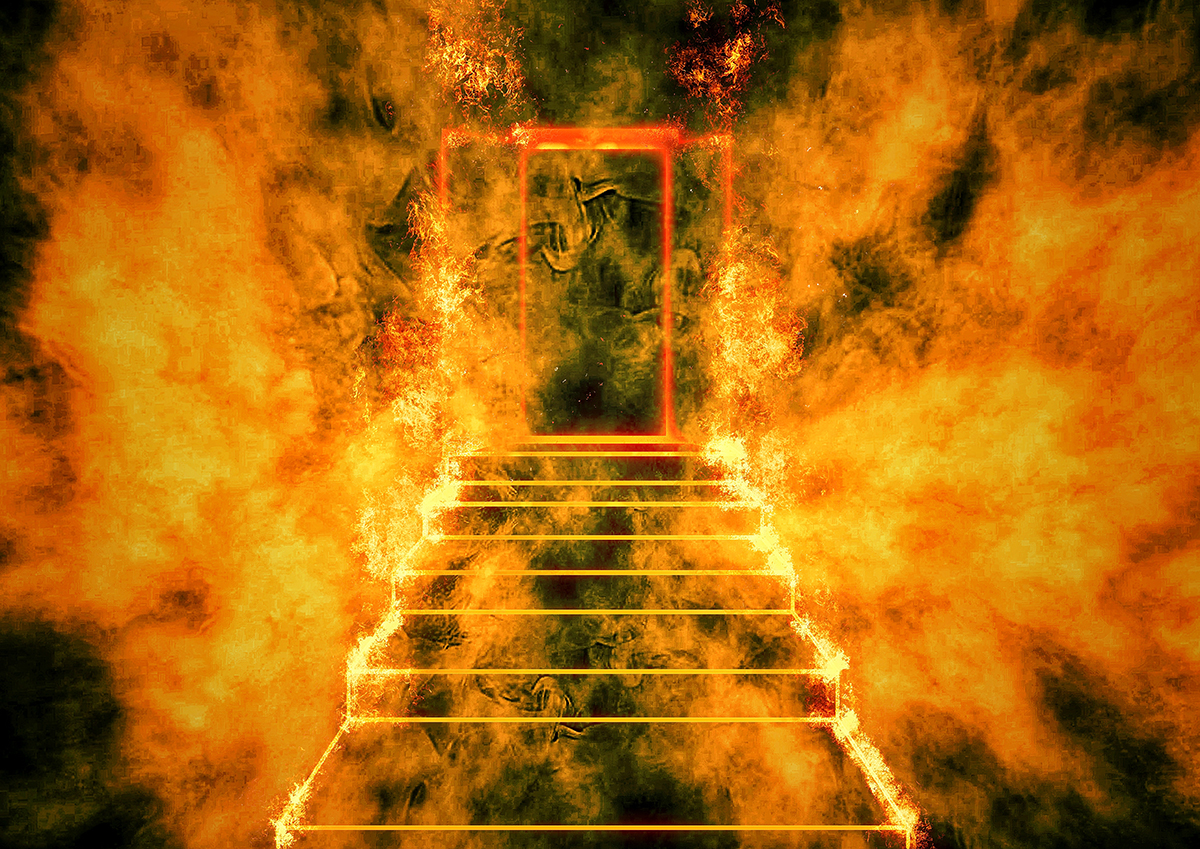
by David A. Cox
Synopsis: The idea that God is cruel because He will send people to hell is rooted in a lack of understanding of God’s character.
Many skeptics and atheists claim that God is cruel—pointing to the fact that Scripture teaches that God will judge people and send them to hell. Of course, such a view misunderstands the character of God. In Matthew 25:46, Jesus teaches that there are two destinies where souls will spend eternity after this life: heaven or hell. In the judgment scene that is pictured in Matthew 25, people are judged according to their works, and their destiny is determined by that judgment. Some individuals question the very idea of a place of torment called “hell.” They ask, “How could a loving God send people to hell? God is all-knowing. He knows I will make bad choices, so why would He hold that against me? Is that not cruel for God to do that?” Let us consider this thought from what the Scriptures teach about the character of God.
God is wholly good. It is hard for us to even imagine how good He is because, as men, we cannot reach God’s heights of goodness. The goodness of God is unequalled. Scripture is filled with affirmations and examples of God’s unmatched goodness. A few verses that remind us of His goodness are:
The Lord is good, a stronghold in the day of trouble; and He knows those who trust in Him (Nah. 1:7).
Good and upright is the Lord; therefore He teaches sinners in the way (Ps. 25:8).
Oh, taste and see that the Lord is good; blessed is the man who trusts in Him! (Ps. 34:8).
Every good gift and every perfect gift is from above, and comes down from the Father of lights, with whom there is no shadow of turning (Jas. 1:17).
These verses remind us that God only desires what is good for us. Let us remember that every action of God is for the benefit of His people.
“No one is holy like the Lord, For there is none besides You, Nor is there any rock like our God” (1 Sam. 2:2). The holiness of God is without comparison to any. Absolutely no evil is found in God. John said, “God is light; in Him is no darkness at all” (1 John 1:5). The evil impurities and sinful stains that come into our lives are not found with God. It is holiness that leads to the righteousness of God. God is the state of moral perfection. Nothing is lacking in His character that would allow evil to abide. It is perfect righteousness that God required as the atonement for sin. God, knowing man’s inability to attain this state, gave His Son to pay the debt that was required for sin (John 3:16).
The love and mercy of God is often the only view men see of God. Sacred Scripture declares, “God is love” (1 John 4:8). The psalmist says, “You, O Lord, are a God full of compassion, and gracious, longsuffering and abundant in mercy and truth” (Ps. 86:15). We see the love and mercy of God in two things:
That God loves us is indisputable. God is the Creator and made everything very good (Gen. 1:31). He put man in the Garden of Eden, a place of perfection, to live and enjoy the abundant blessings there. Adam was not created as a mindless robot, but God allowed him the freedom to choose as he desired. God gave one command “to not eat of the tree of the knowledge of good and evil” (Gen. 2:17). It was Adam and Eve who chose to eat the forbidden fruit, and sin entered the world. God’s love was always there, but Adam and Eve’s commitment to obeying God was not always present.
After Adam and Eve sinned, God put them out of the Garden of Eden but began working a plan to save man from sin. The salvation of man involved sending His Son to this earth to pay the penalty for sin: “God demonstrates His own love toward us, in that while we were still sinners, Christ died for us” (Rom. 5:8). The blood of Jesus was shed to redeem man back to God. He still gives man a choice. We can avail ourselves of the blood of Jesus, or we can reject it. However, God does not desire that anyone should be lost, but He will force no one to obey Him.
Not only is God good, holy and righteous, loving and merciful—He is also just. God is perfectly upright in the treatment of His creation. He is fair and equitable in His dealings with man. Isaiah writes, “Therefore the Lord will wait, that He may be gracious to you; and therefore He will be exalted, that He may have mercy on you. For the Lord is a God of justice” (Isa. 30:18). God gave commands against the mistreatment of others, and He executes punishment for those that act against the law (Zech. 7:10; Rom. 12:19; 2 Thess. 1:6).
Justice is important to all. That God is a just God is something about which people should be delighted. Divine justice is for our benefit, if we serve Him faithfully. The Hebrew writer states, “For God is not unjust to forget your work and labor of love which you have shown toward His name, in that you have ministered to the saints, and do minister” (Heb. 6:10). The justice and righteousness of God are the foundation of His throne (Ps. 89:14). In this life, individuals may commit hideous crimes, such as rape, murder, assault, etc. What if the guilty party goes before the judge who weighs the evidence, but says, “I know you are guilty of this crime, but I am going to let you go”? Would anyone think that justice had been served? Of course not! Would anyone believe that the judge was cruel if he pronounced the one guilty and gave the most severe penalty that the law allows? No! Why is that the case? Because of justice. We understand that evil acts require punishment. Since creation, all have been given a sense of justice.
God was not cruel to Adam and Eve when they sinned and were cast out of the garden. God was not cruel when He destroyed the world with the flood in Noah’s day. We could go on and on with examples of God’s judgment and punishment for people committing sin. The fact is that, in every case, God’s will was not followed, and they were punished for their transgression. God has always made His will known and expects it to be kept. He gave individuals free choice to do as they want. God loves and cares for all men, but allows them to choose to do as they desire. The same is true today. God’s will has been revealed to us. We have the opportunity to consider the things that have been revealed to us. We then must decide either to do God’s will or to do our own will. God told us that in keeping His will and being righteous, we will be given a home with Him in heaven. God has also said that those who choose not to do His will and practice lawlessness will be cast away from Him into hell, a place of eternal torment.
God is not cruel to send someone to hell who has made the conscious choice not to do His will. Such decisions are made by the individual. God is loving and is not desiring that anyone would be lost, but He will not force one to do something he does not want to do. God is a good, holy, righteous, loving, and merciful God, but He is also a just God and will do what is just and upright. 


